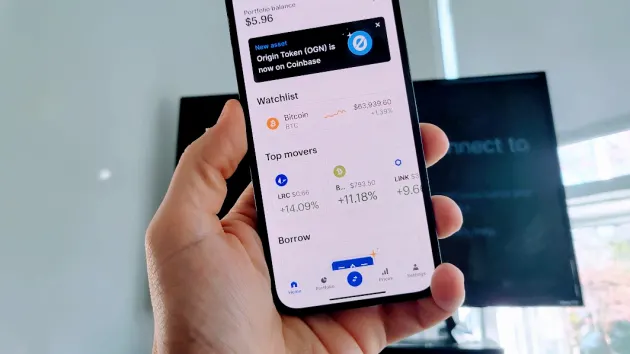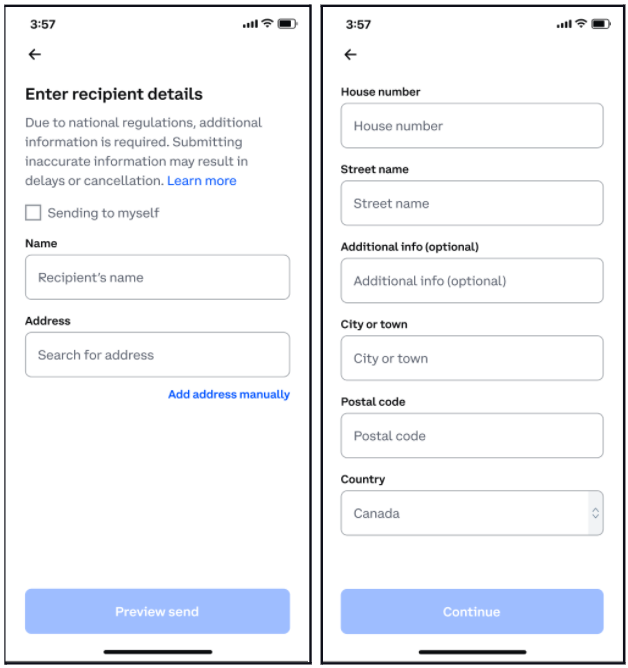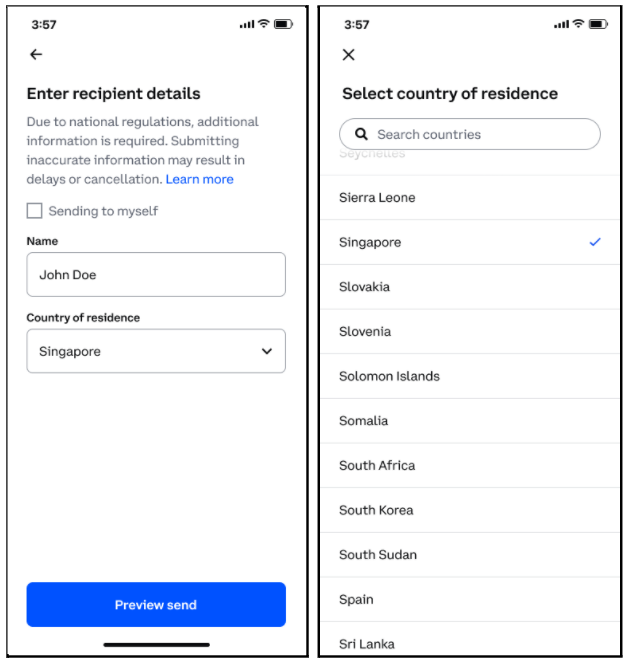Coinbase has revealed its latest decision on ensuring some of its users divulge their recipient information when sending crypto to non-Coinbase wallets in some countries.

Coinbase has stated that it would soon gather extra information from customers in Canada, Singapore, and Japan, citing compliance with local regulations.
The exchange users in Canada, Singapore, and Japan will be asked to submit more information starting April 1 when sending cryptocurrency to a non-Coinbase platform.
While Singaporean and Japanese investors will be asked to give additional recipient information for any off-platform transaction, Canadians sending less than $801 (1,000 CAD) will be excluded.

Canadian users will need to disclose the recipient’s full name and residential address, as indicated in the screenshot above.
Furthermore, when transferring funds between their crypto wallets, Canadian users who meet the aforementioned two criteria will be legally required to submit the recipient’s (self) information.
For every single off-platform transaction, however, both Japanese and Singaporean rules will force the exchange to collect information about the beneficiaries from local investors, with no minimum threshold.

Investors from Japan, like Canadians, will be required to disclose information such as the recipient’s full name and address, as well as the name of the crypto exchange that will be holding the wallet.
Users in Singapore will just need to submit the recipient’s name and country of residence, rather than their residential address. The user will be unable to send Btcoin out of the platform for the jurisdictions in issue due to a lack of required information.
To be exempt from the soon-to-be-implemented rule, Coinbase users who no longer reside in certain areas must amend their country of registration.
Stringent laws ostensibly designed to safeguard investors are paving the way for mainstream crypto adoption in many jurisdictions. The Thailand Securities and Exchange Commission (SEC) has announced a nationwide ban on crypto payments beginning April 2022.
In addition to this law, the SEC has proposed a new rule that, if passed, will require Thai-based crypto firms — brokers, exchanges, and dealers to publish information on service quality and IT utilization.
